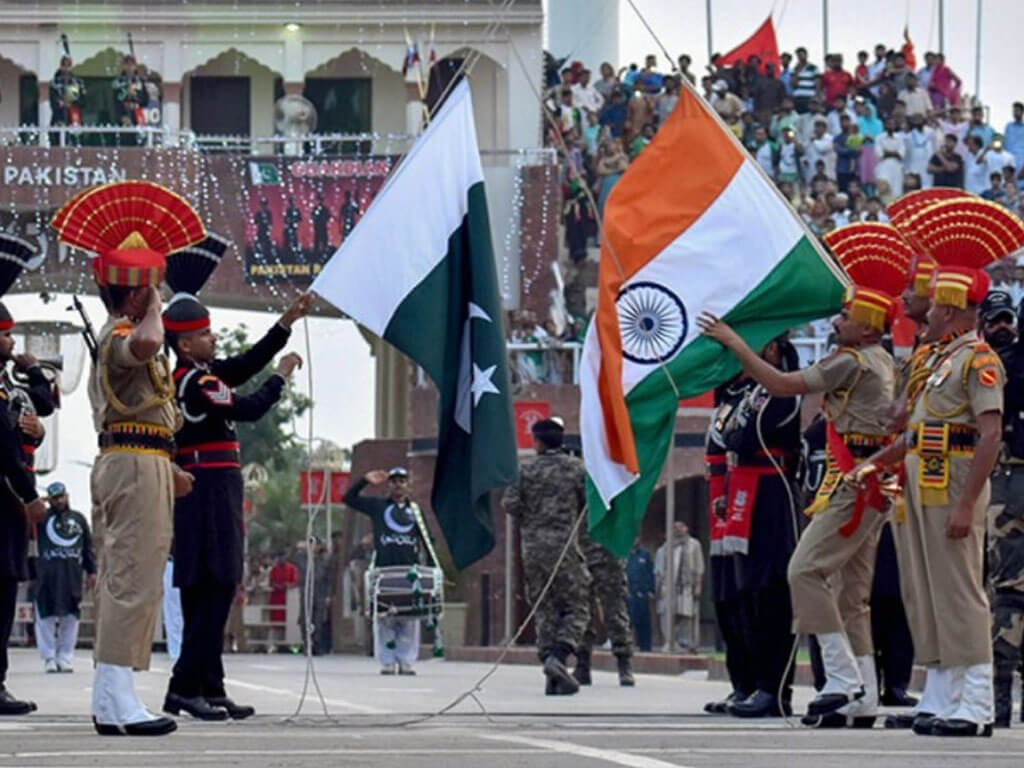On Friday, India and Pakistan exchanged a list of nuclear facilities and installations on their respective territories. According to a statement by the Indian Ministry of External Affairs, “India and Pakistan today exchanged, through diplomatic channels simultaneously at New Delhi and Islamabad, the list of nuclear installations and facilities covered under the Agreement on the Prohibition of Attack against Nuclear installations between India and Pakistan.” This was the 30th exchange conducted under the agreement.
This comes in pursuance of Article II of the abovementioned agreement, which was signed by India and Pakistan in 1988. The agreement came into force on January 27, 1991, and requires both countries to exchange a list of nuclear instalments and facilities on the first day of each year. The document was signed to restrict the two countries from attacking each other’s nuclear facilities and instalments. According to the document, “Works or installations containing dangerous forces, namely dams, dykes and nuclear electrical generating stations, shall not be made the object of attack, even where these objects are military objectives, if such attack may cause the release of dangerous forces and consequent severe losses among the civilian populations.”
However, this agreement, while well-intended, especially in light of the continuous unrest that taints the two countries’ relations, is not without its flaws. For instance, there are no verifications measures to ensure that the list submitted is an exhaustive one. Moreover, there are no specific criteria to determine what facilities must feature in the list.
Moreover, the two sides also interchanged a list of prisoners that were being housed in their jails. According to a statement by the Pakistani Foreign Office, the Indian High Commission in Islamabad reported that out of the 340 Pakistani nationals that are in captivity in Indian prisons, 263 are civilians and 77 are fishermen. Similarly, Pakistan submitted a list of 537 Indian nationals that are currently imprisoned in India. Out of these, 54 are civilians and 483 are fishermen. Following this, the Indian Ministry of External Affairs called upon Pakistan to expeditiously provide its nationals with consular access. It further urged the Pakistani side to work towards the early release of “civil prisoners, missing defence personnel and fishermen along with their boats.”
The exchange of the lists of prisoners is in accordance with the Consular Access Agreement, which was signed between the two rival neighbouring countries on May 21, 2008. This agreement requires both countries to submit such lists on January 1 and July 1.
However, Pakistan failed to mention Kulbhushan Jadhav, whose detention also resulted in a case before the International Court of Justice (ICJ), in the abovementioned list of prisoners. According to Pakistan, this is primarily because Jadhav was neither a civilian nor a fisherman. In fact, he has not featured in any of the bi-annual lists since 2016.
The exchange comes as both countries continue to be at loggerheads with each other over their ongoing border dispute in Kashmir. They have also blamed each other for sponsoring cross-border terrorism activities. India and Pakistan’s relations reached a new low following the Pulwama attack on February 26, 2019, which led to the death of 40 CRPF members. The tensions spiked when India decided to rescind the special status of Jammu and Kashmir. Since then, both countries have engaged in a war-of-words and have also been vehemently looking to gather international support against the other, specifically in multilateral forums such as the Financial Action Task Force and the Organisation of Islamic Cooperation. However, the continuation of these traditional exchanges, despite these tensions, indicate that both countries remain determined to follow through with their commitments under these documents.
India, Pakistan Interchange List of Nuclear Installations and Facilities
In furtherance of a 30-year old bilateral agreement, India and Pakistan exchanged a list of nuclear installations and facilities in their territories.
January 4, 2021

SOURCE: BUSINESS RECORDER
